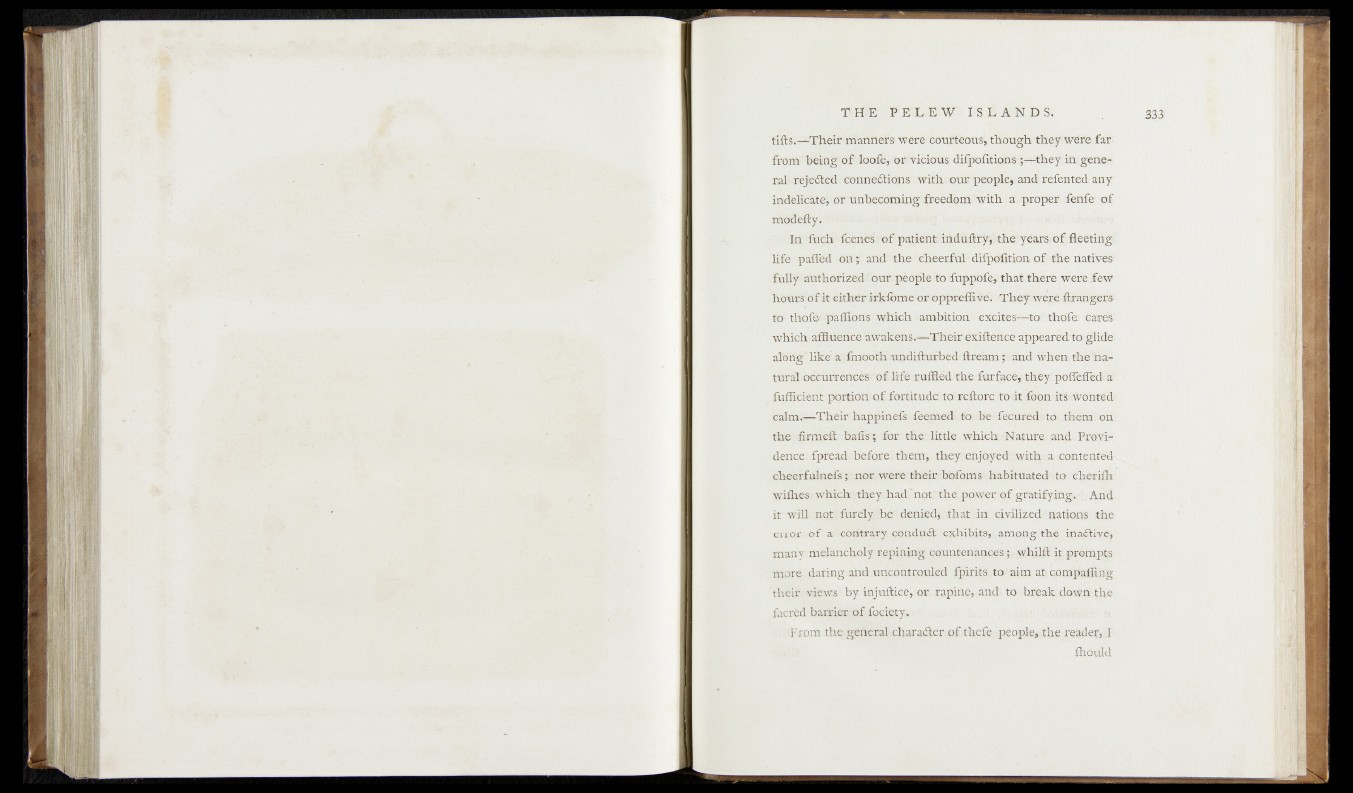
T FT-E f f n i H I A m D i 3 3 3
tifls.-‘-Their’ manners were? eourtieou s!, tibbugh? theywdrhfafc
flom' being: ofdboie,. orrfticfeatts? diipufttianiS.;Hltb©y3ih( gene^
ral- reje&ed j connexions with? mwiqpeopleKandr Feinted- any
irideMc&t'eVor unbecoming freedom%khr.,a;«prtfpeKtfenfej of
modefty. :
' Induch fcenes of patrentfdhdbflry^tthetyehrs of-fleeting
life paiTe'd oiv; and 'the' cbeerfM’ difipd%feniqf"tbLe native^
fully- authorized^bur,' people.to fuppofe;. that there Weixejfew
hbmflof it either irkfome or oppreffive. The^swej?e. ftrangere
io- thofe»? paflibns which -ambition ibxfeites—to^.thdfei SafeS»
which affluence awakens.— Their exiftence appeared/torgflidh
a|efxig. like a fmooth U'n.diitufbed'ftrea’m; and when the natural
odCuprencesrof-Mfe ruffiedjth'etinarfacey th^yipdSelTedra'
fufficient portion ?q£ fortitude. to'reftore tout foon j ittsnwonted
calm.!.— Their happinefs. feenaed-ta.' 'be - febufedt to thehrroh’
the firmed: bails; for the*’little1 which'■ Nature#jarid-fflrdvi-
dence; fpread before- them; they enjoyed:}.with-a. oonteated-.
cheerfulaeis ;*,nor were their bofoms habituated tb .c^ew'ife
wiflies | which they had'not theipower of? gratifying. And
it will i npe« fure’lyibe denied* that? in ciyfflzedfAations ;the
error of a contrary conduct exhibits,.,.among the ipaXpye«
many' melancholy repining countenance's; whilft it prompts
more daring and uncontrowled fpifi-t&.tof aim atj eomp,affing
their views by injuftice, or rapine,,and? to break down the
facred barrier o f fociety.
From the general character o f thefe people, the reader, I
i h o u l d